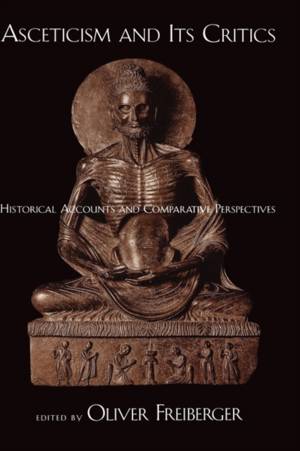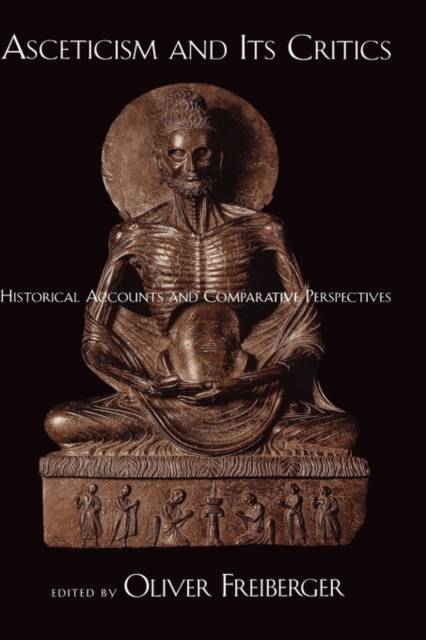
- Afhalen na 1 uur in een winkel met voorraad
- Gratis thuislevering in België vanaf € 30
- Ruim aanbod met 7 miljoen producten
- Afhalen na 1 uur in een winkel met voorraad
- Gratis thuislevering in België vanaf € 30
- Ruim aanbod met 7 miljoen producten
Zoeken
Asceticism and Its Critics
Historical Accounts and Comparative Perspectives
€ 330,45
+ 660 punten
Omschrijving
Scholars of religion have always been fascinated by asceticism. Some have even regarded this radical way of life-- the withdrawal from the world, combined with practices that seriously affect basic bodily needs, up to extreme forms of self-mortification --as the ultimate form of a true religious quest. This view is rooted in hagiographic descriptions of prominent ascetics and in other literary accounts that praise the ascetic life-style. Scholars have often overlooked, however, that in the history of religions ascetic beliefs and practices have also been strongly criticized, by followers of the same religious tradition as well as by outsiders. The respective sources provide sufficient evidence of such critical strands but surprisingly as yet no attempt has been made to analyze this criticism of asceticism systematically. This book is a first attempt of filling this gap. Ten studies present cases from both Asian and European traditions: classical and medieval Hinduism, early and contemporary Buddhism in South and East Asia, European antiquity, early and medieval Christianity, and 19th/20th century Aryan religion. Focusing on the critics of asceticism, their motives, their arguments, and the targets of their critique, these studies provide a broad range of issues for comparison. They suggest that the critique of asceticism is based on a worldview differing from and competing with the ascetic worldview, often in one and the same historical context. The book demonstrates that examining the critics of asceticism helps understand better the complexity of religious traditions and their cultural contexts. The comparative analysis, moreover, shows that the criticism of asceticism reflects a religious worldview as significant and widespread in the history of religions as asceticism itself is.
Specificaties
Betrokkenen
- Uitgeverij:
Inhoud
- Aantal bladzijden:
- 268
- Taal:
- Engels
- Reeks:
Eigenschappen
- Productcode (EAN):
- 9780195307917
- Verschijningsdatum:
- 19/10/2006
- Uitvoering:
- Hardcover
- Formaat:
- Ongenaaid / garenloos gebonden
- Afmetingen:
- 159 mm x 245 mm
- Gewicht:
- 539 g

Alleen bij Standaard Boekhandel
+ 660 punten op je klantenkaart van Standaard Boekhandel
Beoordelingen
We publiceren alleen reviews die voldoen aan de voorwaarden voor reviews. Bekijk onze voorwaarden voor reviews.







